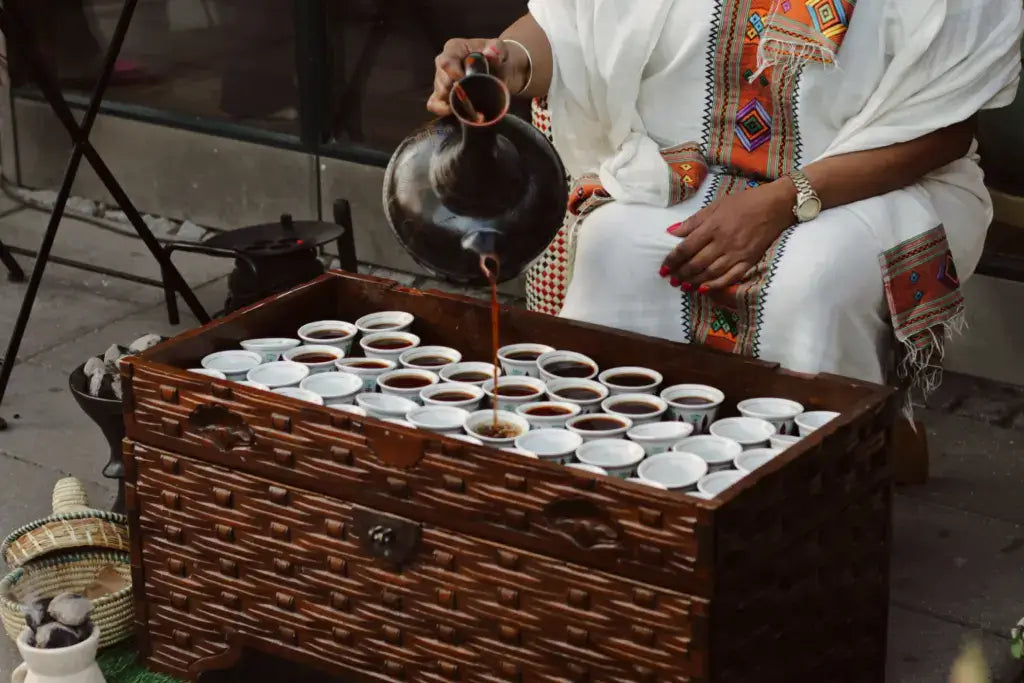
The Ethiopian Coffee Ceremony: A Symbol of Hospitality and Friendship
Adiam EngedaShare
In Ethiopia, coffee is more than just a drink. It is a symbol of hospitality, friendship and community. The coffee ceremony has great cultural significance and serves as an important social link. Neighbors are often invited, and conversations can range from politics to family matters and more. Being invited for coffee as a guest is a sign of respect and affection.
The woman of the house usually performs the ceremony. The process begins with roasting the green coffee beans over an open flame in a pan. The beans are then ground in a wooden mortar and pestle and the coffee grounds are placed in a "jebena" containing boiling water. The Jebena is a clay vessel with a spherical base, a neck and possibly. a pouring spout, a handle and a lid made of straw or cow tail. The mixture is left on an open flame for a few minutes so that the coffee mixes well with the hot water.

To serve the coffee, the host tilts the "jebena" and pours the coffee into small, handleless cups called finjal until each is full. Pour slowly to avoid spilling the grounds with the coffee. The coffee grounds are usually brewed three times. After the first brew, more water is added to the pot and boiled again for the second and third brews. The coffee may not be as strong as the first time, but it is just as important to the ceremony. A spoonful of sugar is usually added to coffee, and in rural areas sometimes salt or butter is added.
Loose grass is spread on the ground where the coffee ceremony takes place, which is often decorated with small yellow flowers on special occasions such as holidays. A small snack is usually served with coffee, e.g. E.g. popcorn, peanuts or himbasha (traditional pastries).

